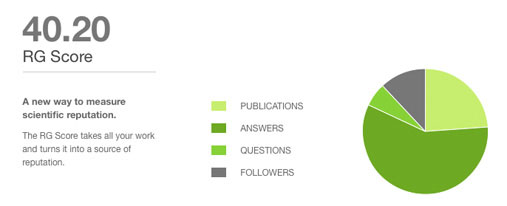ResearchGate: an alternative to traditional publishing?
22 Aug, 12 | by BMJ
ResearchGate, a Q&A site that soon became known as ‘Facebook for scientists‘, has announced its intention to function as a publishing platform for scientific researchers and offer an alternative measure of reputation in that community.
Started in 2008 with few features, ResearchGate was reshaped with feedback from scientists and has attracted several million dollars in venture capital from some of the original investors of Twitter, eBay and Facebook. According to the website, more than 1.9 million scientists currently share papers, publish data and engage in discussions on its platform. Now an ‘RG Score’ has been designed to make those interactions visible and quantifiable.

 Photos perform best across the board, followed by text and video, according to the data. News links bring in the lowest number of likes, shares and comments. In opposition to Twitter, posts with a high number of self-referential words such as “I” and “me” get more likes . “It’s also important to be passionate, not neutral,” which means that both positive and negative posts tend to do well.
Photos perform best across the board, followed by text and video, according to the data. News links bring in the lowest number of likes, shares and comments. In opposition to Twitter, posts with a high number of self-referential words such as “I” and “me” get more likes . “It’s also important to be passionate, not neutral,” which means that both positive and negative posts tend to do well. 

